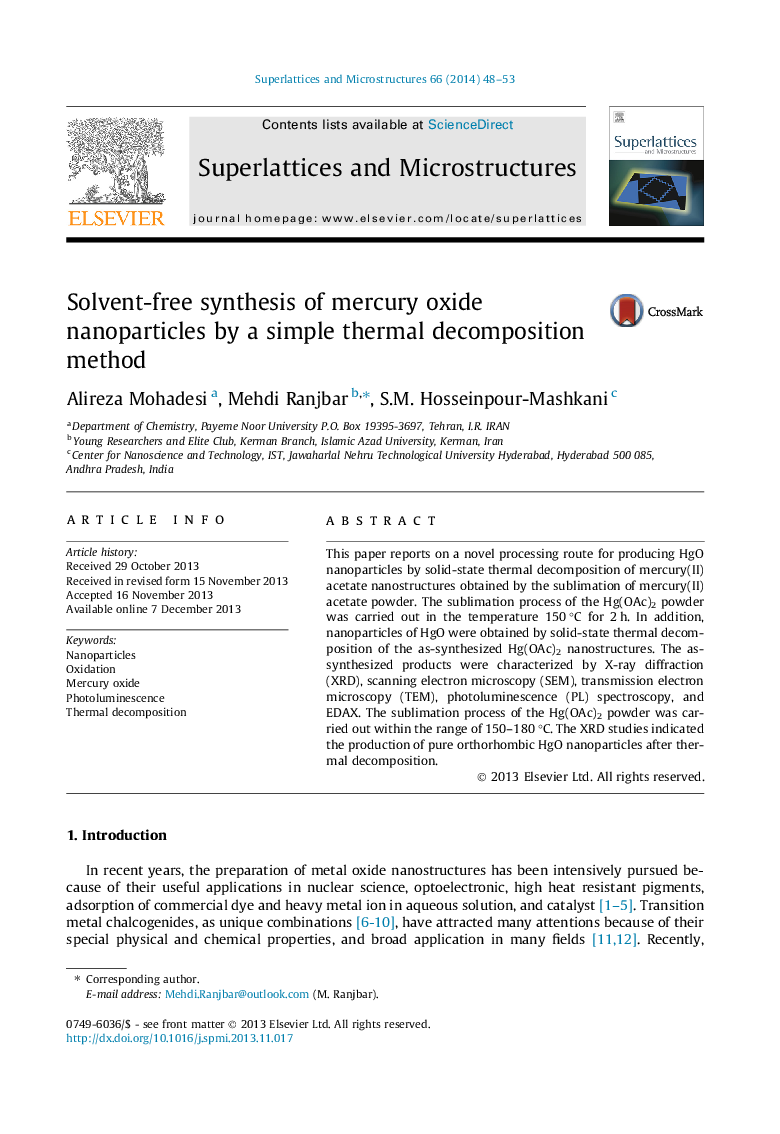| Article ID | Journal | Published Year | Pages | File Type |
|---|---|---|---|---|
| 1553386 | Superlattices and Microstructures | 2014 | 6 Pages |
•We use thermal treatment method for preparation of HgO.•Mercury(II) acetate after treatment does not create hazardous like mercury selenide during the heat treatment product.•Since melting point of mercury(II) acetate is lower than other mercury source so we can treatment at lower temperature.
This paper reports on a novel processing route for producing HgO nanoparticles by solid-state thermal decomposition of mercury(II) acetate nanostructures obtained by the sublimation of mercury(II) acetate powder. The sublimation process of the Hg(OAc)2 powder was carried out in the temperature 150 °C for 2 h. In addition, nanoparticles of HgO were obtained by solid-state thermal decomposition of the as-synthesized Hg(OAc)2 nanostructures. The as-synthesized products were characterized by X-ray diffraction (XRD), scanning electron microscopy (SEM), transmission electron microscopy (TEM), photoluminescence (PL) spectroscopy, and EDAX. The sublimation process of the Hg(OAc)2 powder was carried out within the range of 150–180 °C. The XRD studies indicated the production of pure orthorhombic HgO nanoparticles after thermal decomposition.
